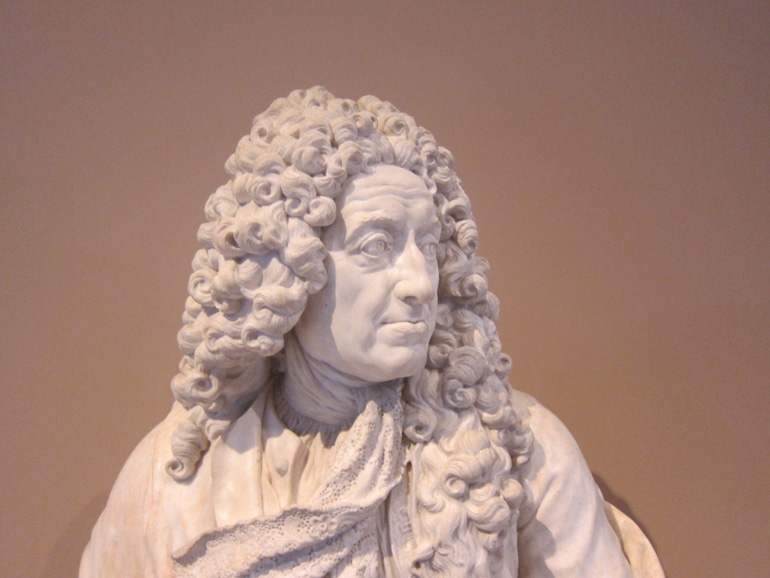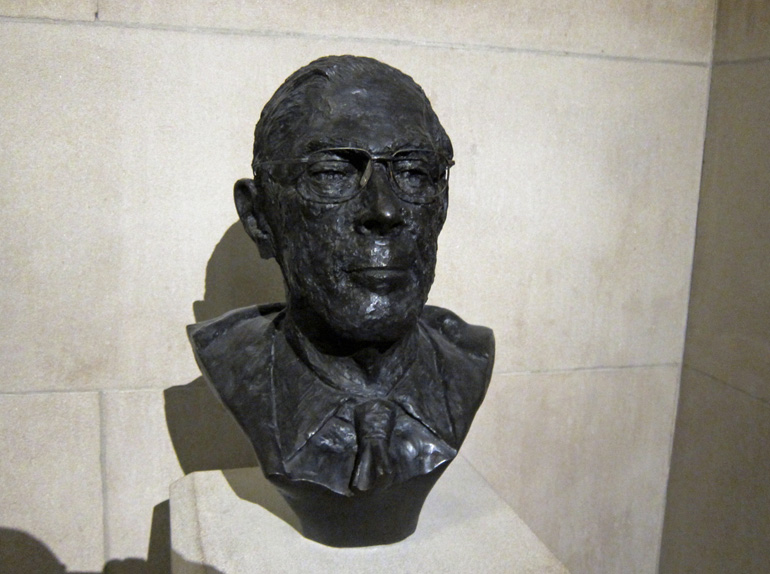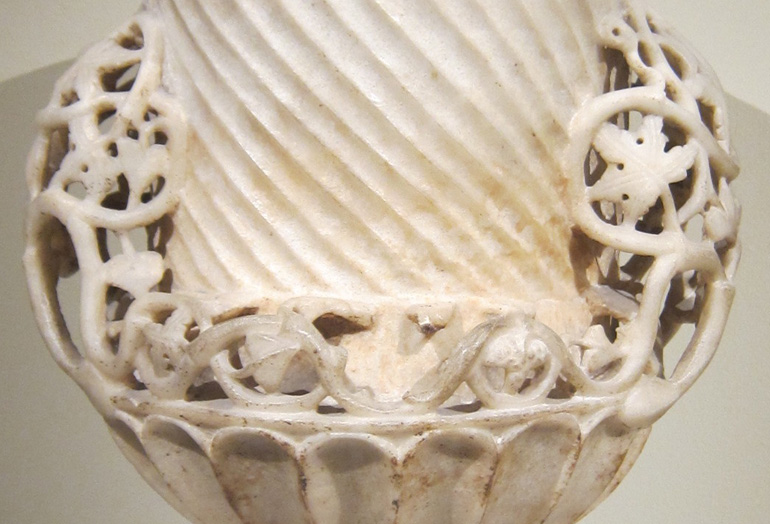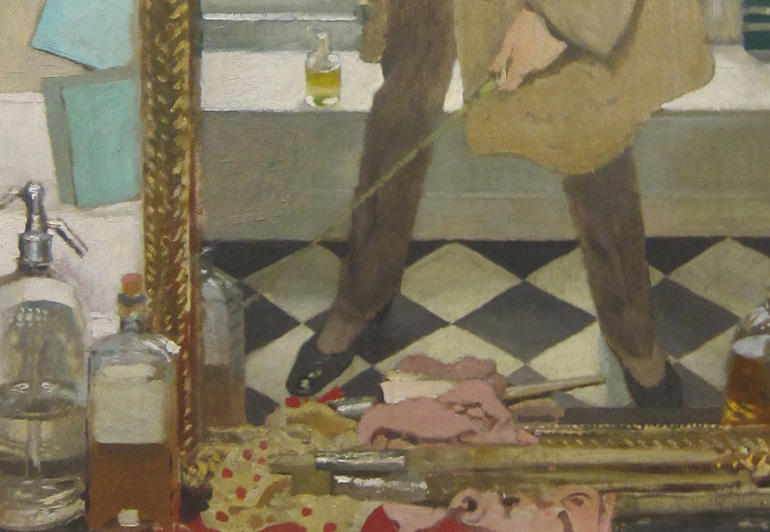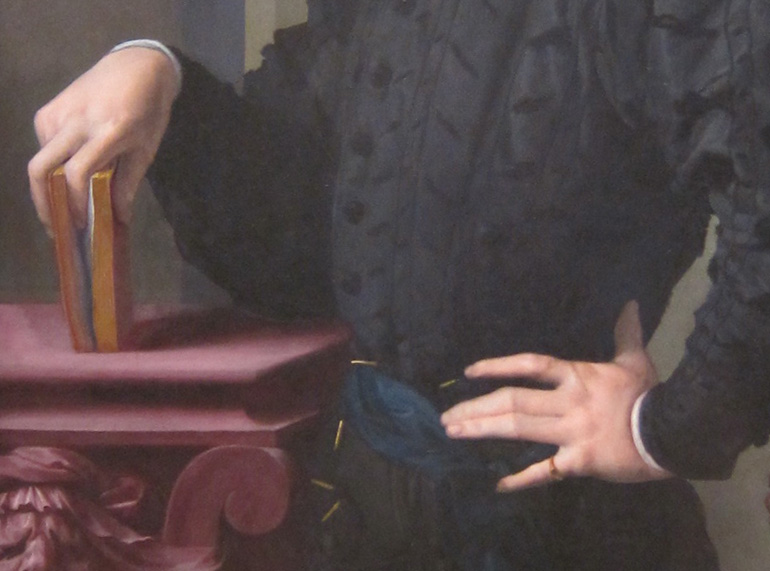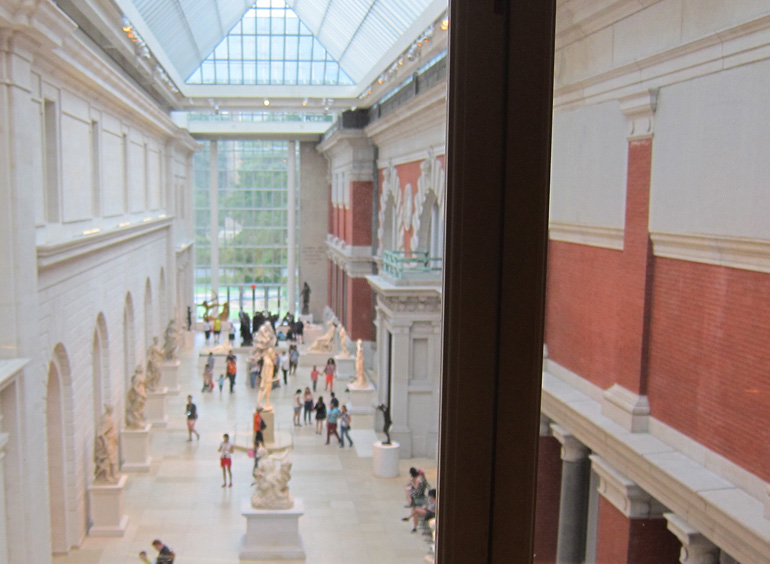Gotham Diary:
Midrash
30 September 2013
Monday, September 30th, 2013
For much of last week, I was absorbed by a book that I spotted in the window at Crawford Doyle, But where is the lamb?: Imagining the Story of Abraham and Isaac, by James Goodman. I was captivated by the dust jacket, which reproduced the feel of the Torah and Talmud codices that were on view a few years ago at Sotheby’s. The title is framed by a border in which all nineteen verses of Genesis 22 are printed. This tells the story of Abraham’s sacrifice of his son, Isaac, which is interrupted at the last minute, so that a ram is sacrificed in substitution.
This story has gripped the religious conscience of the West, Jewish and Christian alike, believer and non-believer, ever since the beginning of the Common Era. More than that, if we include Jubilees, the non-canonical addition to the Hebrew Bible, written in the Second Century BCE. Jubilees is the earliest recorded commentary, aside from mention in Scripture itself, on the story; had Jubilees entered the canon, we would be calling it a revision rather than a commentary. The Bible, as Goodman reminds us, is full of revisions, with the revised versions following the originals, not erasing them. Thus: two accounts of Creation, two Floods, two sets of Ten Commandments. Chronicles on top of Samuel and Kings. But there is only one account of the Sacrifice of Isaac — Genesis 22 — and it is very spare. It is so underwritten, in fact, that the case can be made, and has been made, that the sacrifice was completed as planned, and that Isaac was slain and his body burned. For, Scripture tells us, the Temple in Jerusalem was built upon the ashes of Isaac at Moriah. So was the Second Temple. The death of Isaac at his father’s hands is a minority reading, but it’s livelier than you might think.
Goodman’s book is a relaxed but searching history of responses to Genesis 22. It is written in an agreeable voice, at least to these ears: Goodman sounds, above all, like an intelligent New Yorker. What bothers him about the story is that Abraham never protests God’s command. This seems wrong, and also out of character, for Abraham has a history of questioning God.
I was stunned. It was not at all what I had anticipated. I had no illusions about God, not after Adam and Eve, Cain and Abel, the Great Flood, and the Tower of Babel. (I have never been persuaded that the citizens of that apparently peaceful place, working together and getting along, had done anything wrong.) Nor confidence that I could predict his behavior or fathom what he was thinking. Still, I harbored a sneaking suspicion that it was not what God had anticipated either. But what could he do? He tried to make the best of a difficult situation, adjust on the fly, cut his losses and Abraham’s too. Look forward. Move on. Try not to let one bad day spoil the rewards of a good long life. Sometimes events take unexpected turns, even when you are thought to have everything under control.
And what could I do?
He could write this book, which in the course of its narrative explores the story of Abraham and Isaac from every which way, addressing its moral thorniness (how could God ask such thing?), its theological mystery (why does God feel the need to test Abraham? Doesn’t he know?), and the almost infinitely varied interpretations to which it has been subjected (early Christians in Syria composed chants in Sarah’s voice, even though Sarah is conspicuously absent from Genesis 22). It would be foolish to attempt to encapsulate here what is already in itself the smallest possible capsule that Goodman could design to contain the best of what has been written about this story. I have quoted a mere paragraph just to suggest the kind of company that Goodman’s reader can expect to keep, with a host who is genial but not sunny, inquisitive but not obsessive. A man whose sense of ignorance fans his enthusiasm for perpetual learning. Perhaps a quip from the end of the book will fix this picture.
A trade book editor, another fan, said he was fascinated by the subject and intrigued by my take on it, but he wondered if I was qualified to write the book. “You have no training or special experience in any relevant area,” he said. “You don’t even have the languages you would need.”
“It is worse than that,” I said to him (and forever afterward to anyone who would listen). “The real problem is not that I am not qualified. It is that I know how much I do not know.”
And yet: But where is the lamb? is a graduate thesis in the non-academic discipline of Lay Inquiry, and the reader has no choice but to grant Goodman this crowning degree among the educated pursuits.
It can be argued — bearing in mind that Goodman’s book offers proof that almost anything can be argued — that the central question underlying Isaac’s question, which is also the title of the book, pertains to qualifications. Who is A to do x? Who is God to demand the sacrifice of Isaac? Who is Abraham not to utter a word of protest? Who is Goodman to write this book? Sheherazade comes to mind: Goodman establishes his credentials simply by gripping the reader from episode to episode of articulate response. Few books have held the totality of my attention as well as this one, and, for two days after putting it down, I was gravely discontent with all other reading material on offer. Even though I am not a believer, and yet perhaps because, having been raised Roman Catholic, I was kept well ignorant of the Bible throughout childhood, I find that few things occupy my mind as fully, as comprehensively as Scripture. The Bible is the compleat book: it’s got everything. (The only thing that could improve it would be to substitute the work of Jane Austen for the Book of Esther. Since God appears in neither, I can’t think what would be lost.) It sustains a galaxy of criticism that no one could ever read entire; there is even a canon of Non-Scripture (the Apocrypha, books such as Jubilees, the items in the Nag Hammadi Library). And there is the State of Israel, embodying in our time the contention witnessed in Scripture.
There is much to deplore in Scripture. (Judges 19 is my personal favorite for horror.) But Scripture is too massive to quibble with. It reminds me, perhaps impiously, of that spacecraft in the first of the Star Trek movies, a Voyager vessel (it calls itself Veejer) that, in the course of its wanderings, has accumulated all the powers of the universe, and now returns homewards with the confused determination to cleanse the Earth of “carbon units.” Such is the fright of looking into the eyes of God.
***
For centuries — no one knows for how many — Genesis 22 appears to have been an enigmatic or mysterious episode that readers accepted as such. Then, at about the time of Jubilees, they found that they could not; they must, as Abraham failed to do, protest. Why? My hunch is that the another sort of Veejer disturbed the Jewish world: Hellenism. Hellenism was the pop culture of the day, from the wake of Alexander until the onslaught of Islam nearly a thousand years later. Everyone wore a sort of everyday Hellenism, just as everyone wears jeans today. It doesn’t mean much, and yet — well, jeans are thought to be sexy. When I was a boy, you were not supposed to look sexy unless you were a woman going out to a party, and even then, “sexy” was not the word. So blue jeans changed a lot. The hellenic equivalent of blue jeans, as I see it, was the law against contradictions. A thing either is or it isn’t. Nothing can be both a sphere and a cube (ie, not a sphere).
Ever since, the law against contradictions has formed the foundation of educated common sense in the West. So much so that we have no idea how unusual it is, or how foreign to the rest of the world. We also forget how much trouble it has created in our own. Read Geza Vermes’s marvelous final book, Christian Beginnings, and watch the story of a Jewish holy man, not terribly unlike many before him, distend this way and that in response to the horror of contradictions. What, for example, was the meaning of the Resurrection? Assuming that it occurred, what were its implications? These had to be worked out without contradiction. How did it differ from the Ascension of Elijah? Who was Jesus? It was not sufficient to call him a holy man; he had to be something more than that. But what? Next thing you know, Christianity was working its way toward polytheism, in the form of a trinity that it insisted, not very convincingly to outsiders, upon worshiping a “triune” god. Does “trinity” signify three things, or one thing in three parts, and, if the latter, what exactly is a “part”? Your (correct!) decision or your life! Because what follows immediately from the law against contradictions is that you must be either right or wrong.
We have learned, I think, to restore a reverence for mystery, at least in areas of faith. (The Roman Catholic Church never abandoned it, but exploited it as the “explanation” of everything that was inexplicable.) We are learning to be comfortable with ignorance wherever being so is safe. We are beginning to learn. At the same time, we have to be careful about avoiding mystification, which is never anything more than intriguing nonsense. Such as the civilian’s right to bear arms, anytime, anywhere. (We avoid this nonsense at airports, it will be noted.) Or that nuclear power is too dangerous to utilize.
But where is the lamb? opens a small seam on the problem of contradiction: in rare but important cases, the body of contradictory explanations is itself the best answer. I’m going to be looking for Goodman’s book on thoughtful readers’ shelves.





